
“Such an upheaval would throw millions out of work or push them into retraining for other jobs envisioned by the proposal — assuming those jobs existed in sufficient quantity — that may not pay as much or offer the same level of benefits.”
Plan would ruin U.S. economy, fail to mitigate climate change
THE GREEN NEW Deal, introduced in the U.S. House as a non-binding resolution Feb. 7, is a wildly unrealistic and unworkable proposal for mitigating climate change by radically remaking America’s economy and society.
The proposal calls for a transition to 100 percent renewable energy by 2030, abruptly ending the use of traditional energy sources including coal, natural gas and petroleum. It ignores promising technologies that could help decarbonize major sources of greenhouse gas emissions. And, despite its great cost ($51 trillion to $93 trillion by some estimates), it would fail to achieve any significant impact on global climate change.
The plan, which also includes an extraordinary amount of social re-engineering, would devastate the U.S. economy, weaken the nation’s ability to compete globally, and destroy American jobs.
Surprisingly, the resolution, sponsored by Rep. Alexandria Ocasio-Cortez (D-NY 14th) and Sen. Ed Markey (D-MA), has received substantial political support, with 67 co-sponsors in the House and 11 in the Senate. Seven presidential candidates have also endorsed it.
Abandoning fossil fuels would have far-reaching consequences
CONSIDER THE RAMIFICATIONS of shifting completely away from fossil fuels in 10 years as proposed under the Green New Deal:
No more natural gas, oil or coal. No cars, trucks, SUVs or farm equipment that run on gasoline or diesel. No diesel-powered trains. No aircraft that use jet fuel. No outboard motors for fishing or leisure boats. No gas stoves, gas hot water heaters or gas furnaces. No products derived from or that use petroleum: asphalt for roads, coke for steel-making, hundreds of pharmaceutical products, kerosene for portable heaters, propane for backyard barbecues or home heating, golf balls, refrigerators, paint or hundreds of other products used in our everyday lives.
Imagine the impact on the U.S. economy and society:
- Closing all coal mines, oil fields and refineries
- Shutting down or retooling factories
- Scrapping planes, ships, locomotives, semis and other vehicles that run on fossil fuels or reconfiguring them to run on an alternate fuel
- Shuttering U.S. power plants that run on natural gas, coal and oil (63 percent of all power generation)
Such an upheaval would throw millions out of work or push them into retraining for other jobs envisioned by the proposal — assuming those jobs existed in sufficient quantity. And those new jobs may not pay as much or offer the same level of benefits. Based on data from the U.S. Bureau of Labor Statistics, it is estimated that up to 9.2 million direct and indirect jobs in just 14 energy-intensive industries would be severely at risk if the plan were implemented.
“The time has come to put our best minds at work and finally address the challenges of climate change responsibly and rationally.”
While the Green New Deal promotes programs for “just transition,” which essentially look to offset job losses with retraining or financial assistance, such programs have never been demonstrated on such a national scale. They cannot guarantee that working families will be left economically sound. Green New Deal jobs may not be available where workers currently live, requiring them to relocate. Workers may not want to give up their careers, especially after years of training and experience that have positioned them to own a home and help put their kids through college. And those who are near the end of their careers would have difficulty transitioning to something much different than their current occupations.
Just transition may be “just” to those whose jobs are not at risk, but for those facing major industry upheavals, the path to a new career is often unclear, the outcome uncertain. Workers who have completed an apprentice program or otherwise dedicated years of their lives in a craft don’t want to see their skill sets devalued or be thrown into junior positions in a new occupation.
And communities impacted by the loss of power plants, refineries and manufacturing facilities — often a major source of tax revenue for basic services — would also face major economic challenges. Where will the money come from to support towns and small cities impacted by the Green New Deal?
Whether nuclear power remains in the energy mix remains unclear. Although nuclear energy is not mentioned in the resolution put before Congress, other documents — including an FAQ from the office of Ocasio-Cortez (later retracted) and a January 10 letter to Congress from environmental groups — clearly call for an end to new nuclear power plants.
Green New Deal ignores essential technologies like CCUS
THE UNITED NATIONS Intergovernmental Panel on Climate Change (IPCC), the world’s leading authority on the subject, recognizes that carbon capture, use and storage must play a key role in decarbonizing the world’s electric power generation and other industry. Without CCUS, meeting climate goals could be twice as costly.
Yet, the Green New Deal ignores the advice of the IPCC and other organizations such as the International Energy Agency (IEA) and instead adopts the “leave it in the ground” position often promoted by radical environmentalists.
Technologies that can achieve high levels of carbon capture, up to 100 percent of emissions, must not be summarily dismissed. In fact, CCUS is the only workable approach to decarbonize non-power-generation industrial processes that release greenhouse gases, such as cement making and aluminum smelting.
(See www.cleanerfutureccs.org for more information on carbon capture.)
Reconstructing the United States won’t solve climate change
EVEN IF THE United States were to remake its society, industry and economy as required by the Green New Deal, and even if the nation achieved 100 percent decarbonization, it would not accomplish the goal of limiting global warming to targets of 1.5C or 2C proposed by the Paris climate accord. Recent estimates using EPA-approved climate models suggest that the Green New Deal would reduce future warming by at most 0.14 degree C by 2100.
Of course, the United States does not control the emissions of other nations. Some 1,500 coal-fired power plants are even now being built or are planned around the world. Nothing America does alone will slow these developments. New coal-fired and gas-fired capacity by other countries would likely offset any carbon emission reductions achieved though the Green New Deal. Shutting down carbon emissions in the U.S. merely invites a proportional increase in emissions abroad.
Moreover, should the United States keep fossil fuels in the ground, it would give up billions of dollars in annual oil and gas exports along with related jobs and tax revenue. Dozens of states from Appalachia to the Gulf Coast to the Rocky Mountain region are critically dependent on fossil energy for jobs and for state and local tax revenues.
Going it alone may seem like a noble undertaking to Green New Deal proponents who argue that the United States should abandon fossil fuel use to set the example for other nations to follow. But is that realistic? Would other countries remake their economies and their society because the United States chose to do so — or would they take advantage of America’s absence in the fossil fuel markets to even more quickly expand their use of those fuels to our disadvantage?
Globally, 80 percent of the world’s energy is derived from fossil fuels. In recent years, nations with developing economies have invested heavily in power plants, mines, refineries, ports and pipelines to expand their access to coal and petroleum. These countries are not likely to strand their investments because the United States chooses to do so.
If we are to really make a difference, we should prioritize, invest in and scale up carbon capture, use and storage technologies to slash emissions from fossil fuel use and industrial processes, and we should export those technologies far and wide. Such an effort would create substantial high-wage jobs using skills that Boilermakers and other union trades already possess.
The Green New Deal is fraught with uncertainty, extreme risks and trillions of dollars of costs that would be borne by consumers and government alike. Even so, the plan has captured the imagination of a significant slice of society. This should be a wake-up call for the federal government to develop a wise national energy policy, one that fully embraces CCUS technologies and an “all of the above” approach to energy that includes fossil fuels, renewables, nuclear and other sources.
The time has come to put our best minds at work to finally address the challenges of climate change responsibly and rationally.












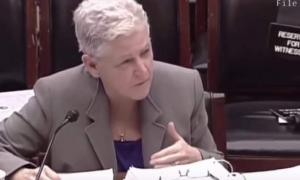
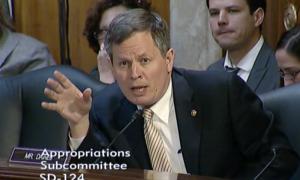


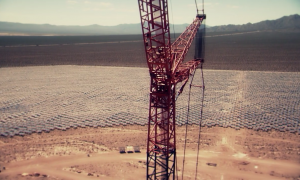
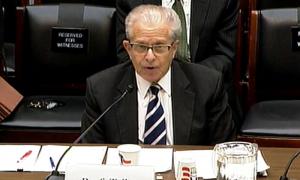
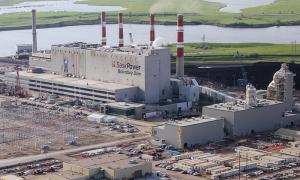
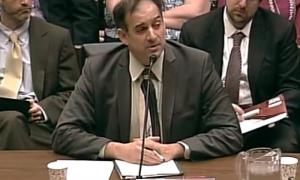
0 Comments